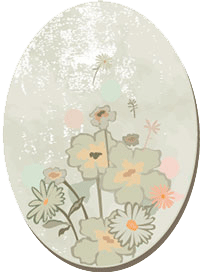
Hello, I am a practitioner of Traditional Chinese Medicine, Wen Junran.
Today, Teacher Wen will present you with a question regarding the basic knowledge of pulse diagnosis.
Pulse diagnosis appears quite mysterious to many people, even somewhat esoteric. In fact, TCM pulse diagnosis is a very scientific method with strong regularity and rigorous logic. Mastering pulse diagnosis scientifically is crucial for diagnosing and treating diseases.
Among the various pulse types, the xian mai (string pulse) is very important. It can be seen in many diseases or syndromes. Among the following five options, only one will rarely show the string pulse. Can you find it?
A. Liver and gallbladder diseases
B. Body pain
C. Internal phlegm and fluid
D. Constitutionally Yin deficient
E. Weak stomach qi
If you have an answer in mind, feel free to write it in the comment section of this article. Teacher Wen looks forward to seeing your insights. Of course, as per usual, your comments will not be publicly selected until the answer is announced, to help more people think independently.
Analysis of the last question —
Last time, Teacher Wen asked what effects sweet-flavored herbs generally have. The options were: induce sweating and release the exterior; promote qi and invigorate blood; tonify the middle and benefit qi; relieve pain and stop cramping; astringe and secure, prevent leakage; soften hardness and dissipate nodules; promote bowel movements and relieve constipation; drain water and promote urination.
The correct answer is B, tonify the middle and benefit qi, relieve pain and stop cramping.

This question is almost impossible to answer incorrectly. Sweet-flavored herbs generally have the effects of tonifying the middle and benefiting qi, relieving pain and stopping cramping. For example, Gan Cao (Licorice) is sweet and neutral, capable of tonifying the spleen and relieving pain. Similarly, Da Zao (Jujube) is sweet and warm, which can tonify the middle, benefit qi, nourish blood, and calm the spirit.
What flavor of herbs is good at inducing sweating and releasing the exterior, promoting qi and invigorating blood? Generally, this is considered to be the spicy flavor. For instance, Chuan Xiong (Sichuan Lovage), Mu Xiang (Aucklandia), and Zi Su Ye (Perilla Leaf) are effective in releasing the exterior and promoting qi and blood circulation. The ancients summarized the functional characteristics of spicy herbs as being able to move and disperse. They act like a force pushing forward and outward, clearing stagnation and exterior pathogens.
What flavor of herbs is good at astringing and securing, preventing leakage? Generally, this is the sour flavor. Sour flavor has astringent and securing properties, and is often used for those with spontaneous sweating, night sweats, chronic diarrhea, or frequent urination. Representative herbs in this category include Lian Zi (Lotus Seed) and Hai Piao Xiao (Cuttlefish Bone).
What flavor of herbs is good at softening hardness, dissipating nodules, and promoting bowel movements? Generally, this is the salty flavor. The ancients summarized that salty herbs can soften and descend. For example, Mang Xiao (Mirabilite) is effective for promoting bowel movements and is salty in flavor. Hai Zao (Sargassum) and Bie Jia (Soft-shelled Turtle Shell) are effective in eliminating goiters, and they are also salty. Of course, salty flavors often enter the kidneys, so many kidney-tonifying herbs, such as Zi He Che (Human Placenta) and Gui Jia (Turtle Shell), are also salty.
What flavor of herbs is good at draining water, promoting urination, and relieving dampness? Generally, this is the bland flavor. In TCM, bland flavor is often not mentioned, or it is categorized under sweet flavor. Bland herbs, such as Yi Yi Ren (Job’s Tears), Fu Ling (Poria), and Zhu Ling (Polyporus), are effective in promoting urination and draining dampness. This is their general characteristic.
Alright. Compared to the previous question, today’s question is relatively simpler. I believe you can answer it correctly. Give it a try!


